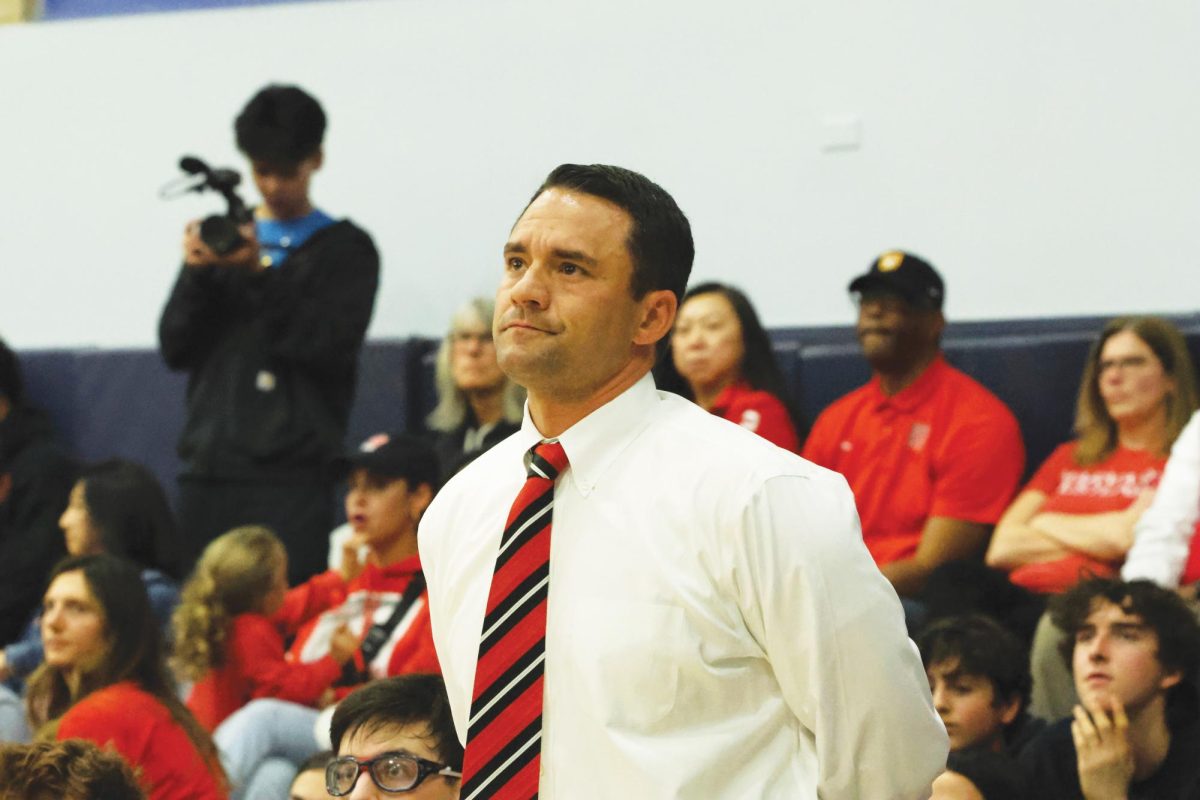By Andrew Lee
Eli Stein â09 didnât use air conditioning in his car once this summer. That way he was able to get an extra three miles per gallon on his Volvo. The discomfort was worth the dollars he shaved off his gas bill, he said.
Stein is one of many students changing the way he drives in response to skyrocketing prices at the gas station. In an informal survey of 50 upper school students, 41 said that escalating gas prices have made them adopt new habits or drive different cars. Six of the students interviewed traded in their gas guzzlers for smaller or more fuel-efficient cars, and three students bought manual transmission cars to improve gas mileage.
Seven said they had adopted efficient driving habits such as braking less, taking highways more and avoiding peak traffic hours. Some students cut back on other expenses and avoided going out with friends.
The change at Harvard-Westlake mirrors a larger state and national trend. The U.S. Department of Transportation reported Americans drove 1.4 billion fewer miles in April compared to the same month last year. It is the first time since 1979 that traffic on the roads declined in California, the Department of Transportation reported on its website.
Gasoline costs are causing students to reconsider carpools, vacations and car purchases. With gas nearing $4 a gallon in Los Angeles, students suggest that gas prices are transforming teenage culture.
Alistair Belton â09 is looking to buy a Honda motorcycle for $4,500 to cope with rising gas prices. He calculated that the price of the motorcycle would pay itself off in seven months through the gas money he would save.
Since his Audi only gets 10 miles per gallon, the 50 mpg motorcycle will reduce his weekly gas costs by $150, he said.Â
“A motorcycle might be dangerous, but Iâm only using it for short commutes,” Belton said. “These gas prices are just too much.”
“Not only do I have more money to spend, but I can also live a greener lifestyle by emitting less green house gasses in the air,” Belton added.
Kimo Thorpe â09 pays $97 to fill up the tank of his 1991 Cadillac Brougham that gets 10 mpg. Thorpe now spends more days at home instead of going out.
“I canât afford these sky-high prices,” Thorpe said. “Itâs ridiculous.”
Thorpe has been asking his mom to trade his car for a more gas-efficient car, but so far she has not agreed.
Neha Sharma â09, who lives in Agoura Hills, said she doesnât hang out or go to parties far from home because they are not worth the drive. She only goes to the gym when she can carpool with a friend in her neighborhood. She walks or roller skates to the local grocery store and takes the bus for local commutes, she said.
Sharma stays home and eats in for most of her meals at home to avoid spending extra money at restaurants. Her parents wonât let her drive unless she has an “important doctorâs appointment.” Sharma said it was not always like this in her house.
“Now that I think about it, gas prices have taken over my familyâs lifestyle,” Sharma said. “It makes you really want to try and get the most out of your trip.”
Sharma takes the freeway more and avoids slow local streets to save gas.
“These habits are more beneficial to our wallets and the environment,” Sharma said. “Itâs sad to know that weâre destroying all this natural beauty that the world has to offer because of our own selfish needs.”
Other students said they were motivated to use less gas because of their concern for global warming. Allison Paller â09 and Kelsey Geiser â09 bought hybrid cars because they wanted to reduce greenhouse gas emissions.
Sunho Lee â09, Carl Lawson â09, Rory Handel â09 and Belton bought manual transmission cars to increase fuel efficiency. Lawson said manual cars are more efficient because drivers can shift at a lower RPM and roll in neutral. Lawson traded in his automatic BMW for a manual Audi last April.
“It was hard to make the stick shift adjustment at first but I was forced to get used to it,” Lawson said.
Handel, who drives an Audi S4, enjoys going on a joy ride in Malibu at least once a month, but hasnât been able to since April.
“With a declining economy and the effects of global warming in front of us, these new habits are definitely here to stay in the next few decades,” Handel said.






































